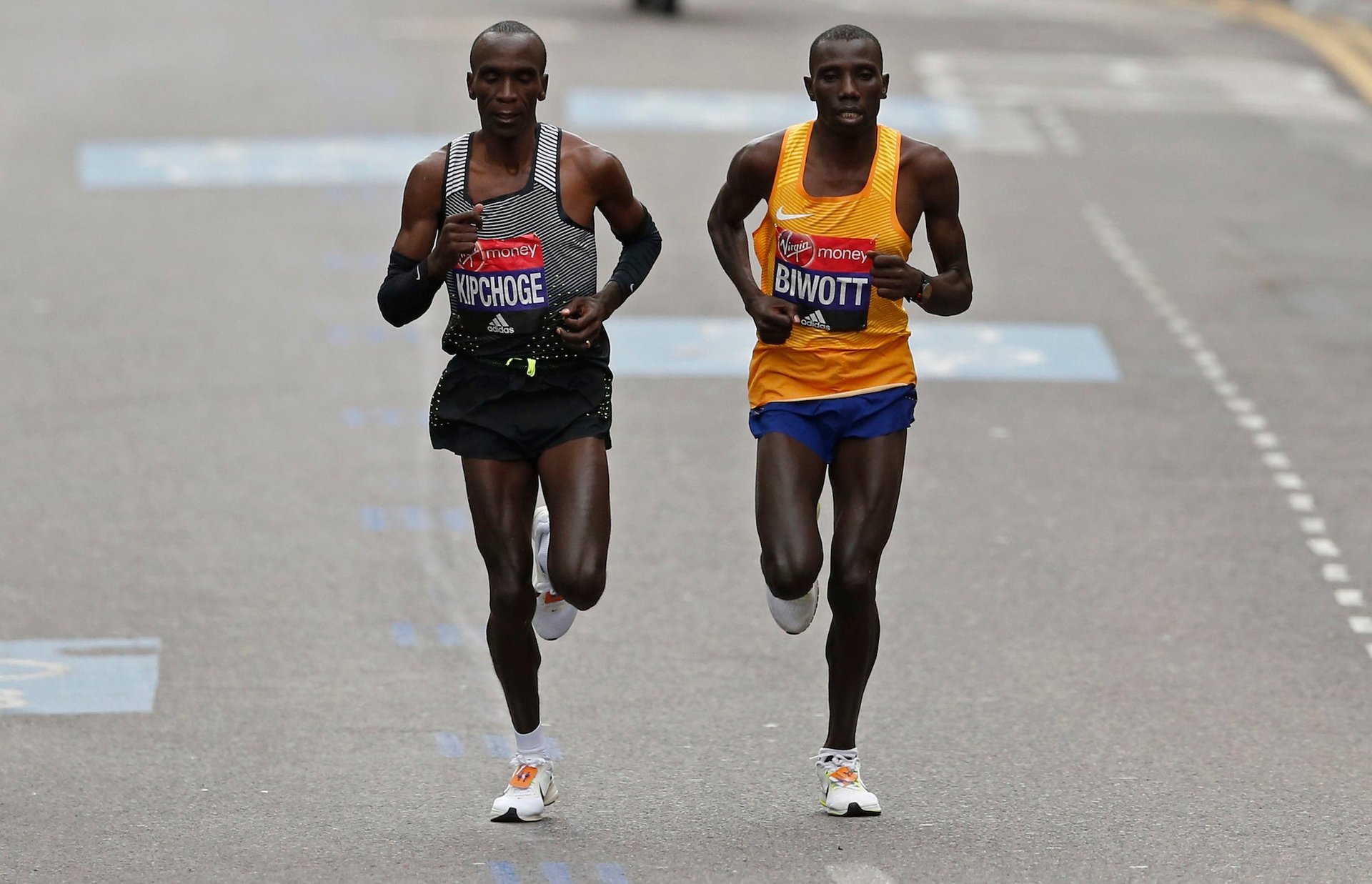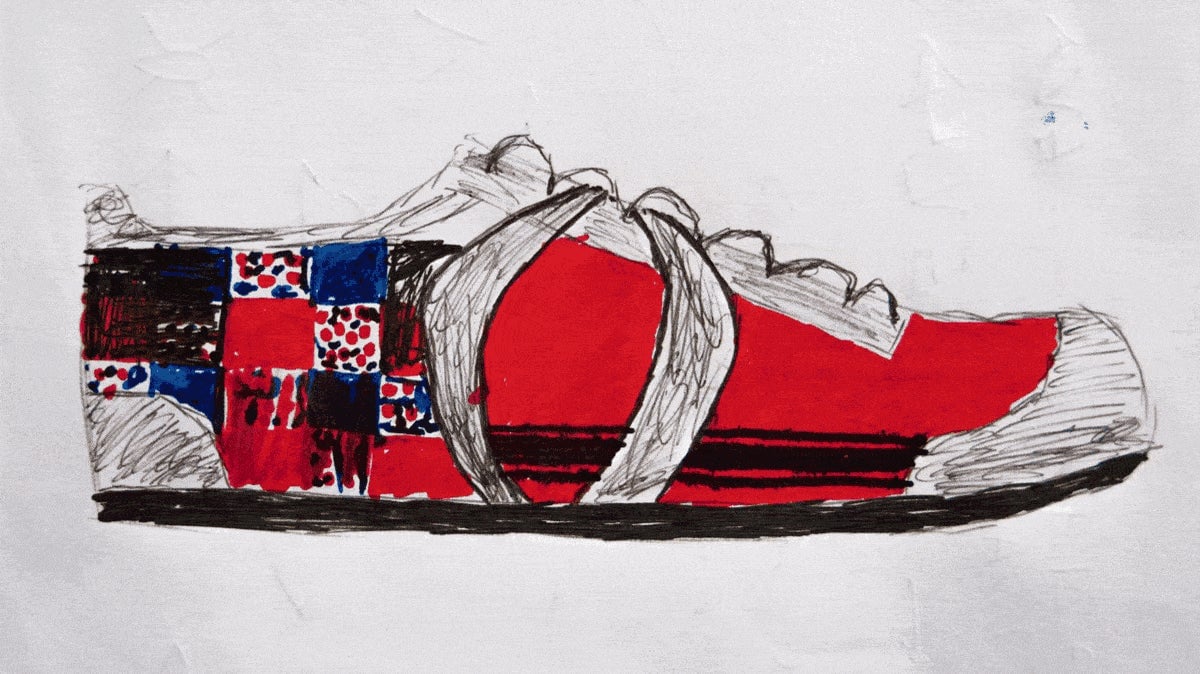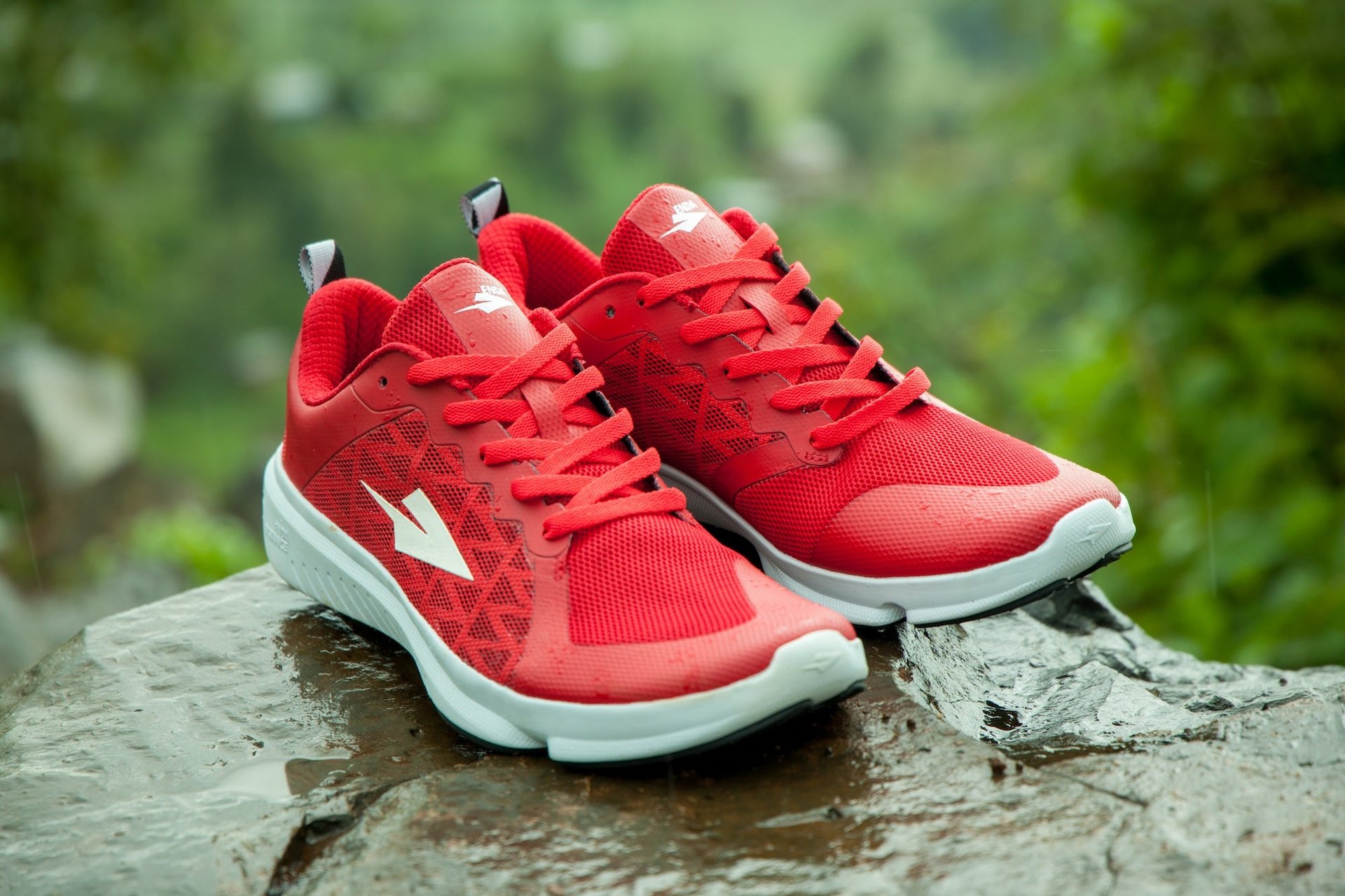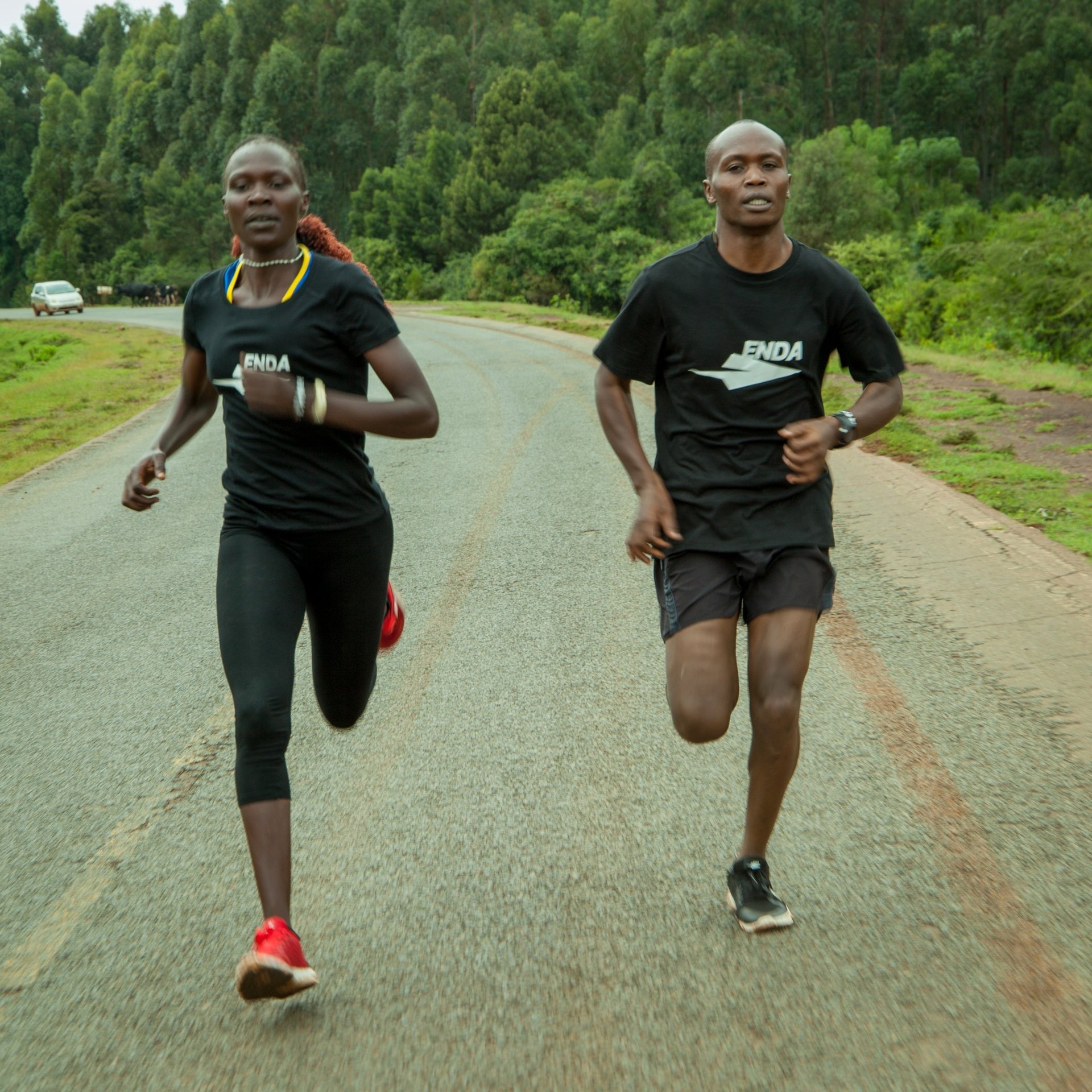Kenya, home to the world’s fastest runners, will soon produce high-performance running shoes
For years, runners and scientists have been trying to understand why a developing east African country of 43 million produces the vast majority of the world’s top long-distance runners. Kenya has dominated most of the world’s major long-distance races since the 1980s, winning more than 50 Olympic medals. A Kenyan has won the Boston Marathon’s men’s race in 20 out of 28 races since 1988. Currently, eight of the 10 fastest male marathoners and four of the top 10 female marathoners are Kenyan.


For years, runners and scientists have been trying to understand why a developing east African country of 43 million produces the vast majority of the world’s top long-distance runners. Kenya has dominated most of the world’s major long-distance races since the 1980s, winning more than 50 Olympic medals. A Kenyan has won the Boston Marathon’s men’s race in 20 out of 28 races since 1988. Currently, eight of the 10 fastest male marathoners and four of the top 10 female marathoners are Kenyan.
To explain the phenomenon, scientists have studied the Kenyan diet, the impact of living at high altitude, and how often children run to and from school. Some point to genetics, while others highlight personality and disposition, or simply the impact of the prevailing belief that Kenyans have an innate advantage at running.
Now, two entrepreneurs are hoping to build on the lore that surrounds the nation’s runners with the first made-in-Kenya running shoe. Navalayo Osembo, a Kenyan entrepreneur, and Weldon Kennedy, an American entrepreneur living in Kenya, are starting a specialty shoe company called Enda, the Kiswahili word for “Go.”
The goal is “to create a way through which Kenya can economically benefit from the running industry, given its reputation on distance running,” said Osembo, who is from a village near Eldoret, a town that has produced many of Kenya’s running champions. The brand’s logo is a spear, adapted from the Kenyan flag. “To us, the spear is literally a symbol of freedom,” Osembo wrote in a blog post last year.


Enda, which hopes to begin production in September if its current Kickstarter campaign is successful, has built a prototype of its shoe. It’s a light-weight trainer that is not quite a minimalist shoe but approximates barefoot running with a low heel to toe drop—the difference in thickness between the heel and the forefront of the foot—and a wider toe box.
Enda is targeting runners in the United States, a group that typically spends between $100 and $125 on specialty running shoes, according to Enda’s research. (Their shoe will be priced around $100.) Under the African Growth and Opportunities Act (better known as AGOA), a trade deal between the US and 40 African countries renewed last year for a decade, the shoes will be exempt from import taxes.

A Kenyan running shoe is smart branding, but actually making it in Kenya is easier said than done. Kenya’s textile manufacturing sector is still small. A few companies, including Switzerland’s Bata and Taiwan’s New Wide, make shoes and apparel in Kenya, but none make specialty athletic shoes. For now, most parts of Enda’s shoes will be imported from a factory in Dongguan, China, operated by the US-based footwear manufacturer Jones & Vining, and assembled in Kenya. Osembo and Kennedy want the entire production process to happen in Kenya eventually.
Enda, which describes itself as a social enterprise, also wants to educate US consumers about Kenyan culture. “The reality is, if you ask someone now, they’d say runners, wildlife, and poverty,” Kennedy says. Enda hopes to start discussions about design in Nairobi, technology, and the innovation happening in urban centers in the country.
Kennedy also hopes to pass on what he sees as the most unique aspect of Kenya’s running culture—a sense of community. When top Kenyan runners Eliud Kipchoge and Stanley Biwott raced during this year’s London Marathon, Kipchoge shocked spectators when he shared his water bottle with Biwott.
Biwott, who came in second to Kipchoge, hugged his rival after crossing the finish line.
“To me, that’s what Kenyan running is. This is serious, huge business, but it’s also about being out with friends,” says Kennedy.